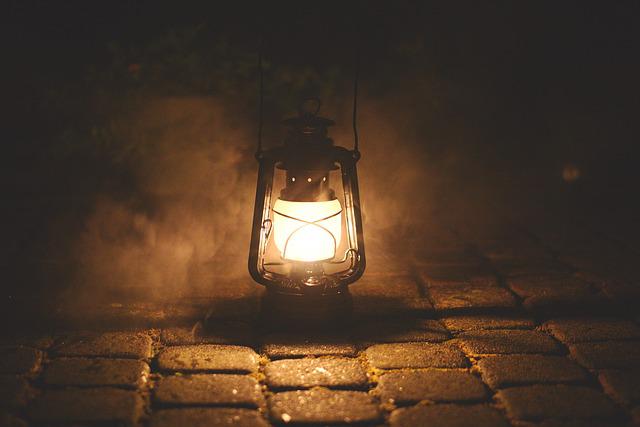Fr Paolo Consonni, MCCJ
“I came to bring fire to the earth, and how I wish it were already kindled! I have a baptism with which to be baptized, and what stress I am under until it is completed!” (Lk 12:49-50)
In these first seven months of the year there have been 53 suicides in Macau, a steep increase in comparison with the past years. The pandemic, economic pressure, isolation and solitude, strained relationships, and anxiety about the future are probably among the causes of these tragedies. Health officials are aware of the need to promote more awareness about mental health in the society. Caritas, and other organizations, can be contacted in case of need. Do not hesitate to call them if you need help.
We can only imagine the depth of the darkness inside a person’s heart when making the decision to end one’s life. But let us be honest, even if in minor degree, we all experienced these dark feelings. They are part of our human fragility, and no one is immune to them.
In this Sunday’s Gospel (Lk 12:49-53), Jesus is aware of this darkness. He underlines He is “in anguish, under huge stress” because he knows that by facing the Cross he will be “submerged” by the darkness of sin, violence, betrayal, and solitude. That is the “baptism” (which in Greek means “immersion”) Jesus is talking about in this particular passage of the Gospel.
But in the midst of this darkness, Jesus kindles the “fire” of God’s love: the Holy Spirit, the gift of the Father that the Risen Christ gave to those who believed him. At Pentecost, “divided tongues, as of fire, appeared among them, and a tongue rested on each of them. All of them were filled with the Holy Spirit” (Acts 2:3-4) “Fire symbolizes the transforming energy of the Holy Spirit’s actions…. who transforms what He touches” (CCC 696).
At Baptism we receive a new life, not because we are different from others or do different things, but because we live our life (which includes work, difficulties, and sicknesses and our relationships (family, society, culture, and nationality) with a different spirit. The Holy Spirit gives us more freedom, the knowledge of where the core values lie, the awareness of the finitude of what many consider absolutes (e.g., power, reputation, affluence, racial identity, longevity, etc.). When enkindled by the fire of the Spirit, everything is indeed transformed.
The darkness is still there, though, and Jesus warns us that divisions might arise: “father against son and son against father, mother against daughter and daughter against mother, etc.” (Lk 12:53), and the same could be said about other social bonds. Far from being inhuman, these divisions, on the contrary, are somehow necessary to build healthy boundaries with others and to keep the right balance between personal identity (which comes from our vocation) and the needs of those who are part of our lives. Without these boundaries we would be paralyzed, unable to make choices, and every relationship would become like a prison. Loneliness is often the result of relationships which are not nurturing nor supportive.
A priest once shared the following experience. After an intense spiritual journey, a young couple decided to get baptized and married in the Church. The bride’s parents, strong atheists, disagreed and rejected the daughter’s decision: “If you get baptized, we will not recognize you anymore as our daughter.” Seeing the daughter’s firm resolution, the father spat on her face and sent her away.
“If God is love, why should I break up with my family in such a painful manner because of Him?” she asked the priest in tears. The priest replied: “Be honest with yourself. Deep in your heart, do you love your parents more now that you are Christian, or before?” After a pause she replied: “Despite what happened, I have no doubt that I love them much more now, with all my heart. I forgive them and I will always love them as my dad and my mom!”
The fire of the Spirit transforms our life in this way, by adding meaning, value, and depth to every human experience, even the most painful ones. We love more. We can therefore “immerse” ourselves in God’s love without fear because, as the Psalmist said, “even the darkness is not dark to You; the night is as bright as the day, for darkness is as light to you” (Ps 139:11-12). We experience darkness, but without being engulfed by it.
“If we let Christ into our lives, we lose nothing, nothing, absolutely nothing of what makes life free, beautiful and great. No! Only in this friendship are the doors of life opened wide. Only in this friendship is the great potential of human existence truly revealed. Only in this friendship do we experience beauty and liberation. And so, today, with great strength and great conviction, on the basis of long personal experience of life, I say to you, dear young people: Do not be afraid of Christ! He takes nothing away, and he gives you everything. When we give ourselves to him, we receive a hundredfold in return. Yes, open, open wide the doors to Christ – and you will find true life” (Benedict XVI, 24 April 2005).
And the Solemnity of the Assumption which we will celebrate on August 15 exactly proves this point.
(Image: Designer-Obst@pixabay.com)


 Follow
Follow


